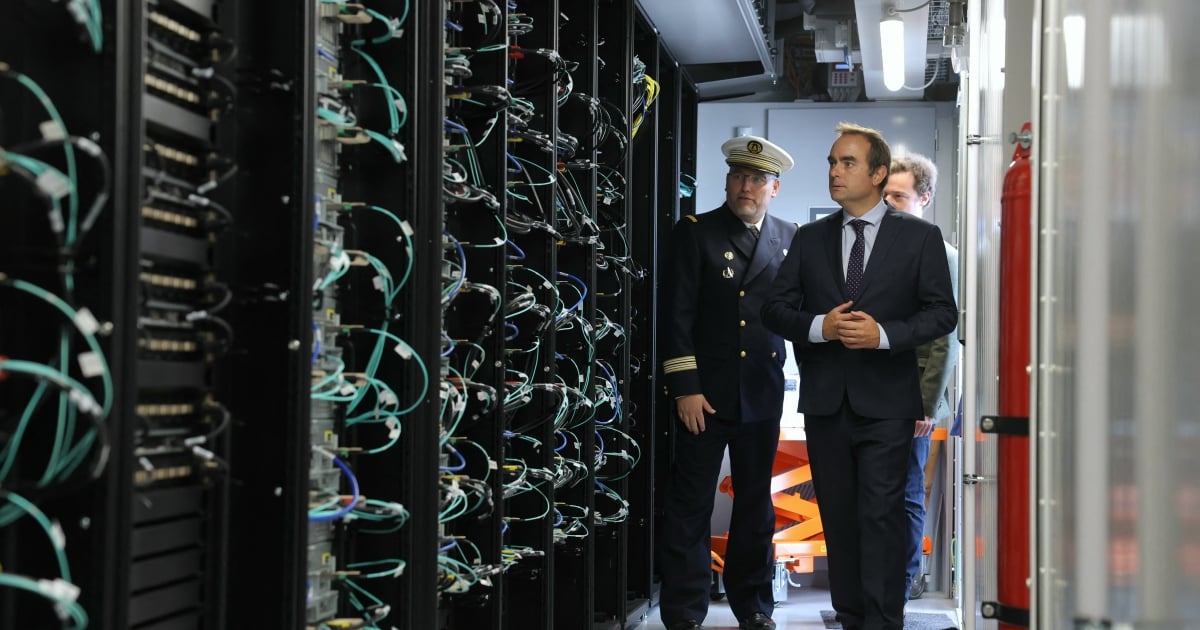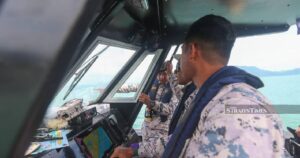IN London’s Shoreditch district, long home to Britain’s tech startups, a French artificial intelligence firm is crunching data that would have allowed Ukrainian commanders to more quickly counter Russia’s 2022 invasion.
Initially fed a fictitious set of orders for a Ukrainian brigade tasked with stopping the Kremlin’s initial armoured thrust south from Belarus towards the capital Kyiv, the AI programme swiftly works its way through the available information including detailed mapping.
Within minutes it has synthesised that information to include likely enemy advance routes, potential courses of action and other considerations for Ukrainian defenders.
Based in Paris, Comand AI was founded 20 months ago and recently received €12 million of venture capital funding. That makes it a relatively new arrival on a growing roster of “defence technology” or “miltech” firms.
In his new book AI, Automation and War, published this month, Exeter University Professor Antony King described the Gaza and Ukraine conflicts as potentially “a turning point in the history of war”, suggesting “they may mark the moment when AI first began to be indispensable to military operations”.
He said those wars showed no sign of AI taking control of systems entirely — but AI was now becoming “more potent every week” and ever more central to military planning.
As Comand AI’s UK vice-president Paul Billings puts it, the purpose of its programmes is not to replace human decision-making and military planning. Instead, it is to make “a smarter decision faster” — or more accurately, multiple decisions much faster and better than the enemy.
For now, United States firms continue to dominate the market and debate, demonstrating a level of ambition few others in the West have yet come close to.
The largest of those is Palantir, established in 2003 and the largest of several defence tech firms backed by PayPal billionaire Peter Thiel.
Senior Palantir executives have talked publicly about being invited to Ukraine in the first days of the war to build the kind of systems they had previously built for the US, Israel and other Western allies.
But when it comes to stepping up engagement with the Pentagon and US allies in Europe and the Pacific, some of the world’s largest tech firms, including Microsoft, Google and Amazon, are now also growing players.
Even industry leader Palantir has in some ways been a victim of its own success.
Last month, Palantir signed a multi-year contract with the US Army to pull together existing AI and analysis work and build out new projects that could be worth some US$10 billion.
The same is true of Anduril, founded in 2017, which unlike Palantir but like German rival Helsing also produces autonomous weapons systems as well as command, control and intelligence systems.
Comand AI — which hopes to win contracts with the French, British and German armies as well as smaller European counterparts — and many of the other firms have made a point of hiring recent military talent alongside AI programmers.
Comand AI’s “lessons learned” tool can go through data and documents and draw conclusions in the style used by the French Armed Forces, while UK defence AI firm Adarga touts its alignment with the British military.
Those contracts, however, are often much smaller than their US equivalents.
Adarga, founded in 2016, recently announced that its latest contract with Britain’s Ministry of Defence was worth “up to £12 million”, with the firm still described officially as a “start-up”.
As efforts to bring the Ukraine war to an end appear to falter, the relationship between these firms — both US giants and smaller US and European firms — and their Ukrainian counterparts is becoming ever deeper, the war increasingly seen as a “testbed” more than a profit opportunity.
In Ukraine and Israel, commanders are anecdotally seen more likely to accept a recommendation to take action if they believe it has come from computer-driven analysis, perhaps a sign that they feel less responsible.
AI is already changing warfare fast — and the legacies of decisions made now may last for years to come.
The writer is from Reuters
© New Straits Times Press (M) Bhd





